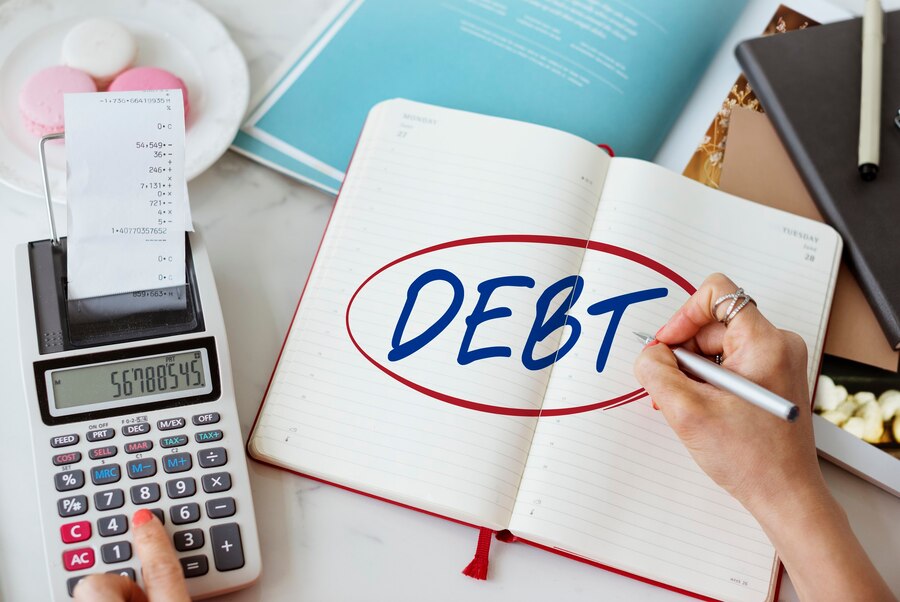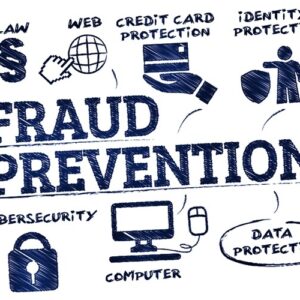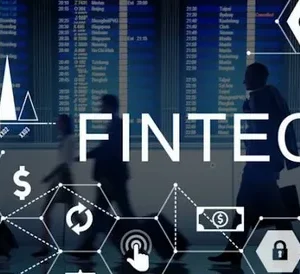

Outline:
How to Pay Off Debt Fast in 2025: Proven Strategies
Introduction
- Overview of the financial challenges in 2025
- Importance of paying off debt for financial freedom
Understanding Debt: What Are You Really Facing?
- Types of Debt (Credit Card, Student Loan, Mortgage, etc.)
- The Impact of High-Interest Debt
- Why Paying Off Debt Should Be a Priority
Key Strategies to Pay Off Debt Fast
- The Debt Snowball Method
- The Debt Avalanche Method
- The Debt Consolidation Approach
- Refinancing Your Loans
- Utilizing the 50/30/20 Rule
Creating a Realistic Budget to Accelerate Debt Payoff
- How to Create a Budget that Works for You
- Cutting Expenses Without Sacrificing Quality of Life
- Finding Extra Income Sources
Ways to Lower Your Interest Rates
- Negotiating with Creditors
- Using Balance Transfers and Personal Loans
Building Financial Habits That Keep You Debt-Free
- Saving Consistently for Emergencies
- Avoiding New Debt: Tips and Tricks
- Increasing Your Financial Literacy
How to Stay Motivated During Your Debt Payoff Journey
- Setting Milestones and Rewards
- Joining Debt-Free Communities for Support
- Celebrating Small Wins
Conclusion
- The key takeaway for paying off debt fast
- Encouraging long-term financial habits
FAQs
- What’s the best method to pay off debt fast?
- How do I stay motivated to pay off my debt?
- Can I refinance my student loans to pay off debt faster?
- Should I use a credit card balance transfer to pay off debt?
- How can I avoid accumulating more debt while paying off existing debt?
How to Pay Off Debt Fast in 2025: Proven Strategies.

READ MORE: Budgeting in 2025: The Best Personal Finance Apps to Manage Your Money
Introduction
Managing debt is one of the biggest challenges many people face in 2025, with rising living costs, inflation, and the ever-increasing interest rates on loans. Whether it’s credit card debt, student loans, or personal loans, being in debt can feel overwhelming and stressful. However, paying off your debt faster is possible, and with the right strategies, you can take control of your financial future.
In this blog post, we will discuss proven strategies to help you pay off debt fast in 2025, from understanding different types of debt to leveraging proven techniques like the debt snowball method. By following the right steps, you can not only pay off your debt but also build a solid financial foundation for the future.
Understanding Debt: What Are You Really Facing?
Before we dive into strategies, let’s first explore the different types of debt you might be dealing with.
Types of Debt (Credit Card, Student Loan, Mortgage, etc.)
Understanding the types of debt is crucial for creating a plan. The most common types of debt include:
- Credit Card Debt: This is high-interest debt and often the hardest to pay off. Credit cards can have APRs ranging from 15% to 25%, depending on your credit score.
- Student Loans: These are often low-interest but can be a significant burden depending on how much you owe.
- Mortgage: A mortgage is typically a large debt, but it usually has a lower interest rate and longer repayment terms.
- Personal Loans: These loans can be unsecured and might come with high interest rates, depending on the lender.
The Impact of High-Interest Debt
One of the primary reasons debt becomes overwhelming is the high-interest rates, especially on credit cards. Interest compounds daily, and before you know it, your balance has ballooned. It’s important to prioritize paying off high-interest debts first because they accumulate the most interest.
Why Paying Off Debt Should Be a Priority
Paying off debt should be a top financial priority for a few reasons:
- Financial Freedom: Once your debt is paid off, you’ll have more freedom to invest in your future.
- Avoiding Stress: Debt creates stress, and eliminating it can greatly improve your mental health and well-being.
- Building Wealth: Without monthly debt payments, you can begin saving and investing for the future.
Key Strategies to Pay Off Debt Fast
Now that we understand the types of debt, let’s talk about strategies to pay it off fast. There are several methods you can use, depending on your situation.
The Debt Snowball Method
The debt snowball method is a popular technique for paying off debt. The idea is simple: focus on paying off your smallest debt first while making minimum payments on others. Once the smallest debt is paid off, you move to the next smallest, and so on.
Why it works: The snowball effect creates momentum. As you pay off each debt, you’ll feel more motivated to keep going.
The Debt Avalanche Method
The debt avalanche method focuses on paying off the debt with the highest interest rate first, then moving on to the next highest, and so on. This method can save you the most money in interest over time.
Why it works: Paying off high-interest debt first minimizes the amount of interest you pay, leading to faster debt repayment.
The Debt Consolidation Approach
If you have multiple high-interest debts, consolidating them into one loan with a lower interest rate might be an excellent strategy. This can simplify your payments and reduce your monthly debt burden.
How it works: You take out a single loan to pay off multiple smaller loans or credit cards. The goal is to lower the interest rate and streamline payments.
Refinancing Your Loans
Refinancing is another strategy for lowering your interest rates. If you have a loan with a high interest rate, you might be able to refinance it to a lower rate, which can save you money and help you pay off the debt faster.
Utilizing the 50/30/20 Rule
The 50/30/20 rule is a budgeting method that can help you allocate your income effectively. It suggests:
- 50% of your income goes to necessities (rent, utilities, etc.)
- 30% goes to discretionary spending (entertainment, dining, etc.)
- 20% goes to savings and debt repayment
By following this rule, you can ensure that a significant portion of your income is dedicated to debt repayment.
Creating a Realistic Budget to Accelerate Debt Payoff
A key component of paying off debt is creating a realistic budget that works for you.
How to Create a Budget that Works for You
Start by tracking all of your income and expenses. You need to know exactly where your money is going to make informed decisions. Budgeting apps like Mint or You Need a Budget can help you stay organized.
Cutting Expenses Without Sacrificing Quality of Life
Cutting unnecessary expenses is crucial for freeing up money to pay off debt. You don’t have to cut out everything fun, but trimming expenses in areas like dining out, subscriptions, and impulse buys can help you allocate more to debt repayment.
READ MORE: How to Pay Off Debt in 2025
Finding Extra Income Sources
If possible, consider taking on a side job or freelance work to earn extra income. Websites like Upwork and Fiverr offer opportunities to make money on the side. Even selling unused items around the house can provide a quick cash boost to pay off debt faster.
Ways to Lower Your Interest Rates
High interest rates can make debt feel impossible to tackle. Here are a few ways to lower your rates:
Negotiating with Creditors
Sometimes, all it takes is a call to your creditor to negotiate a lower interest rate. If you have a good payment history, they may be willing to help you out.
Using Balance Transfers and Personal Loans
A balance transfer involves transferring your high-interest credit card balance to a card with 0% APR for an introductory period. You can then pay off the debt without accumulating interest during the promo period. Alternatively, you might consider taking out a personal loan to pay off credit card debt at a lower interest rate.
Building Financial Habits That Keep You Debt-Free
Once you’ve paid off your debt, it’s important to build habits that keep you from going back into debt.
Saving Consistently for Emergencies
Start building an emergency fund with at least 3-6 months’ worth of expenses. This will protect you from unexpected events that could lead to new debt.
Avoiding New Debt: Tips and Tricks
It’s important to avoid using credit cards or loans unnecessarily. Only buy what you can afford, and always try to pay off your credit card balances in full each month.
Increasing Your Financial Literacy
The more you learn about personal finance, the better you’ll be at managing your money. Resources like Investopedia and NerdWallet can provide valuable insights.
How to Stay Motivated During Your Debt Payoff Journey
Paying off debt can be a long journey, but staying motivated is key to success.
Setting Milestones and Rewards
Break down your debt repayment into smaller, manageable goals. Celebrate each milestone, whether it’s paying off a credit card or knocking out a loan. Rewards can keep you motivated to continue.
Joining Debt-Free Communities for Support
Joining online communities like the Debt Free Community on Reddit or following debt-free influencers on Instagram can provide encouragement and accountability.
Celebrating Small Wins
It’s important to celebrate the small victories along the way. Whether it’s paying off a small loan or simply sticking to your budget for a month, each achievement is a step closer to being debt-free.
READ MORE: Rachel Cruze: How To Pay Off Debt Fast in 2025 Once You Have Emergency Savings | GOBankingRates
Conclusion
Paying off debt in 2025 requires dedication, strategy, and a bit of patience, but it is absolutely possible. Whether you use the debt snowball or avalanche method, work on lowering your interest rates, or create a solid budget, the key is to stay consistent and stay motivated.
By implementing these strategies, you’ll not only pay off your debt faster but also build habits that will help you avoid falling back into debt in the future. It’s a journey, but with the right mindset, it’s a journey that will lead to financial freedom.
FAQs
What’s the best method to pay off debt fast?
The best method depends on your personal situation. If you need quick wins, the debt snowball method is ideal. However, if you want to save on interest, the debt avalanche method may be more effective.
How do I stay motivated to pay off my debt?
Set small, achievable goals and celebrate each milestone. Additionally, joining online debt-free communities can provide support and encouragement.
Can I refinance my student loans to pay off debt faster?
Yes, refinancing student loans can help you lower interest rates, which can reduce the total amount you pay over time.
Should I use a credit card balance transfer to pay off debt?
If you can find a card with a 0% introductory APR for balance transfers, this can be a great strategy to pay off debt without accumulating more interest.
How can I avoid accumulating more debt while paying off existing debt?
Create a strict budget, avoid unnecessary spending, and focus on building an emergency fund so you don’t rely on credit cards during tough times.






This Post Has One Comment